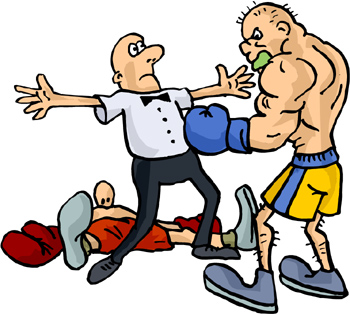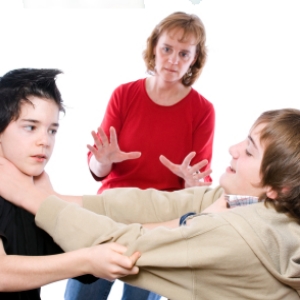Just as Mrs. Waldman hands out the spelling test, you see Jeff pull out a small piece of paper with a lot of little scribbling on it. Jeff tucks the note into his closed fist but soon takes it out again. While he’s taking the test, you see him looking back and forth between the teacher and his paper. There’s no mistaking it — he’s cheating.
What Exactly Is Cheating?
Cheating is when a person misleads, deceives, or acts dishonestly on purpose. For kids, cheating may happen at school, at home, or while playing a sport. If a baseball team is for kids who are 8 or younger, it’s cheating for a 9-year-old to play on the team and hit home run after home run.
At school, in addition to cheating on a test, a kid might cheat by stealing someone else’s idea for a science project or by copying a book report off the Internet and turning it in as if it’s his or her original work. Copying someone else’s words or work and saying they’re yours is a type of cheating called plagiarizing (say: play-jeh-rise-ing).
How Do People Cheat?
Cheating can happen in a lot of different ways. Jeff is doing it by sneaking answers to a test, but it’s also cheating to break the rules of a game or contest or to pretend something is yours when it isn’t. When people cheat, it’s not fair to other people, like the kids who studied for the test or who were the true winners of a game or contest.
It’s tempting to cheat because it makes difficult things seem easy, like getting all the right answers on the test. But it doesn’t solve the problem of not knowing the material and it won’t help on the next test — unless the person cheats again.
Sometimes it may seem like cheaters have it all figured out. They can watch TV instead of studying for the spelling test. But other people lose respect for cheaters and think less of them. The cheaters themselves may feel bad because they know they are not really earning that good grade. And, if they get caught cheating, they will be in trouble at school, and maybe at home, too.
Why Kids Cheat
Some kids cheat because they’re busy or lazy and they want to get good grades without spending the time studying. Other kids might feel like they can’t pass the test without cheating. Even when there seems to be a “good reason” for cheating, cheating isn’t a good idea.
If you were sick or upset about something the night before and couldn’t study, it would be better to talk with the teacher about this. And if you don’t have enough time to study for a test because of swim practice, you need to talk with your parents about how to balance swimming and school.
A kid who thinks cheating is the only way to pass a test needs to talk with the teacher and his or her parents so they can find some solutions together. Talking about these problems and working them out will feel better than cheating.
Truth and Consequences
Many kids feel tempted to cheat once in a while. Most resist and do the work instead. Some kids cheat once and feel so bad that they never do it again. Others get caught and decide it isn’t worth it. Unfortunately, some kids start cheating and feel like they can’t stop.
Kids who cheat may feel worried about getting caught. Whether they are caught or not, these kids may feel guilty, or embarrassed, or ashamed — or all three. Even if the cheater feels fine or doesn’t get caught, that doesn’t mean it’s OK. If you see someone cheating, or if someone asks to copy your work, you can tell a teacher or another grown-up.
Kids who get caught cheating might be given a “zero” score on the assignment, be sent to the principal’s office, and have their parents contacted. Worse than the bad grade may be the feeling of having disappointed other people, like parents and teachers. A parent may worry that you are not an honest person and a teacher might watch you more closely the next time you’re taking a test.
Cheaters cheat themselves in a way because they don’t make an honest attempt to learn as much as they can. For instance, if you cheat your way through spelling tests, you won’t learn how to spell. That can katch — I mean catch — up with you when you get older! And adults who cheat — at work, sports, or in their relationships — get into serious trouble, far more serious than a bad grade on a spelling test.
Making a Comeback
There are plenty of reasons why a kid shouldn’t cheat, but some kids have already cheated. If that’s you, it’s never too late to stop cheating. Cheating can become a habit, but like other bad habits, a kid can always decide to act better and make better choices. It might help to talk the problem over with a parent, teacher, or counselor. Choosing to play fair and be honest again can help a kid feel relieved and proud.
There’s an old saying that cheaters never win and winners never cheat. This may sound confusing because sometimes it seems like cheaters do win — at least for the moment. But kids who don’t cheat are true winners because, when they win, they do it fair and square.
Reviewed by: D’Arcy Lyness, PhD
Date reviewed: July 2010
This article is lifted from KidsHealth.org
http://kidshealth.org/kid/feeling/emotion/cheating.html#












 Everyone has the right to be treated with respect.
Everyone has the right to be treated with respect.



